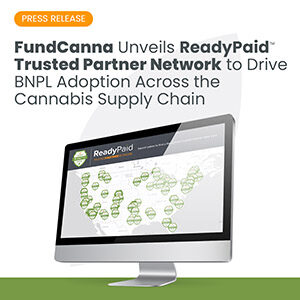The legalization of cannabis in Arizona has sparked a renaissance in the state’s economic landscape, offering vigorous growth prospects alongside a set of emerging challenges.
As businesses establish their foothold within a dynamic environment, strategic planning and agile financial management have become paramount. Since the state’s evolution from medical marijuana legalization in 2010 to the adoption of recreational cannabis in 2020, Arizona’s cannabis industry is navigating a promising yet complex landscape of market maturation, shifting consumer behavior, and regulatory hurdles.
Current Market Landscape
When Arizona transitioned to adult-use, lawmakers opted for a “limited-license market” approach capping the number of dispensaries that could operate in the state. Per regulations, the Arizona Department of Health Services (ADHS) is authorized to issue one medical dispensary license and one recreational dispensary license for every ten pharmacies registered in the State. The current license cap in Arizona is 160 licensed shops which equates to roughly 2.2 stores per 100,000 citizens, leaving the retail market far from saturated when compared to their neighbors.
For comparison, in New Mexico, there are over 1,000 licensed shops vying their piece of a $600 million market, according to the state’s Regulation and Licensing Department. By comparison, in 2024 Arizona pot shops brought in about $8.3 million across 160 outlets making Arizona a more attractive market based on this metric alone.
2022 Arizona cannabis sales outpaced those of longer-established markets like Oregon and Washington. The state reached cumulative sales of $1billion for 2023-2024 with January 2025 figures showing strong sales with average monthly figures indicating robust demand across the state and evolving consumer preferences. March 2025 saw total cannabis sales in the state exceed $106 million, reflecting a 9.7% increase over the previous month but a 9.9% decrease year-over-year.
In 2025 Arizona enacted Senate Bill 1713, the Rural Opportunity Initiative to ensure rural access to licensed shops. According to the initiative, the ADHS can allocate up to 18 licenses to counties lacking dispensaries, permitting licenses in underserved regions under a dual licensing structure wherein operators awarded a license will receive both a recreational and a nonprofit medical marijuana dispensary registration, allowing them to serve medical and adult-use consumers.
Implementation is expected in late 2026, however, at the time of publication in late April 2025, a lawsuit was filed challenging the issuance of a dual-use cannabis license to a major cannabis retailer alleging that it violated both state statutes and federal constitutional provisions.
The state of Arizona imposes an excise tax of 16% on all retail cannabis purchases, this is on top of the standard 5.6% sales tax; local governments cannot impose their own separate cannabis excise tax. Total cannabis tax collections in 2024 were nearly $190 million ($170 M from adult-use sales, $20 M from medical sales) with the industry generating over $26 million in tax revenue in January 2025 alone, marking it as the highest monthly tax revenue level since January 2024.
With Arizona licensed shops now serving more customers, retail sales have steadily climbed contributing to a formidable regional economic impact. More medical consumers are transitioning to the recreational market with medical patient registrations decreasing notably from nearly 300k in 2021 to 87k in early 2025.
Another facet of the current landscape in Arizona is the unregulated hemp market. The state has taken steps to regulate hemp-derived THC products, Arizona’s Attorney General set a deadline of April 24, 2025, to cease sales of certain THC-infused products or face penalties.
Projected Growth
Analysts forecast continued expansion in Arizona’s cannabis market. The growth is driven primarily by increased consumer demand, broader public acceptance of cannabis, and legalization efforts across the region. According to Grand View Research, the state’s legal cannabis market, valued at $1.26 billion in 2023, is projected to reach $3.32 billion in value by 2030, representing a compound annual growth rate of 14.4% from 2024-2030.
Industry operators are eager to meet the demands of a vivacious market.
Arizona cannabis producers are growing their business offerings and capturing more customers through expansion of retail with new locations, expanded loyalty programs, investments in educational programming, and scaled manufacturing operations to efficiently produce and distribute their own products, positioning companies to grow with agility into the future.
In Arizona’s limited-license cannabis market, Master Service Agreements (MSAs) have become a powerful tool. Through MSAs, unlicensed companies can partner with existing license holders to legally operate without having to secure one of the state’s tightly capped permits themselves. With only 160 licenses available, the value of each license has skyrocketed. MSAs effectively turn those licenses into gold by enabling license holders to generate passive income or shared profits through management, branding, and operational agreements with third parties. This structure has attracted investors and multi-state operators (MSOs) looking for market entry while allowing license holders to capitalize on their assets without giving up ownership.
Challenges in the Market
As promising as the market appears, Arizona faces challenges including price compression and oversupply, decline in medical marijuana program, regulatory and financial constraints, the rise of unregulated hemp-derived products, and challenges to social equity initiatives. In 2024, Arizona’s combined medical and recreational cannabis sales declined to $1.1 billion from $1.4 billion in 2023.
The downturn is likely reflecting the transition from rapid expansion to a more stable market. Factors influencing this decline include oversupply of product, increased competition among retailers, which leads to price compression, and a shift in consumer buying behavior.
The era of recreational cannabis has disrupted the medical marijuana program in Arizona, too. The convenience of adult-use purchases and lack of exclusive incentives for consumers to obtain a medical recommendation have led to a strong decline in program participation. Only a few years ago there were nearly 300,000 registered medical marijuana patients to 87k as of early 2025. Efforts to revitalize the medical program, such as proposed legislation to lower medical marijuana card costs and expand qualifying conditions, have so far been unsuccessful.
Financial hurdles connected to regulations are also challenging for operators to navigate. In addition to standard sales taxes, Arizona imposes a 16% excise tax on adult-use cannabis sales, which can drive consumers to the illicit market offering lower prices. Furthermore, since the federal classification of cannabis remains a Schedule I substance, cannabis businesses are restricted from accessing many traditional banking and funding resources, and claiming standard tax deductions, leading to bloated operational costs for cannabis operators across verticals.
The existence of unlicensed cannabis and hemp enterprises pose a threat to both legal business viability and consumer safety. Arizona’s illicit cannabis market remains a significant presence four years into legalization, while precise figures for the unregulated market are elusive, national data provides context. In 2022, the US illicit cannabis market was estimated to be more than double the legal market.
The proliferation of unregulated hemp-derived products such as delta-8 and delta-10 products available online and in convenience stores presents another layer of competition. Hemp-derived products exist in a legal gray area with few to no regulations, attracting price sensitive customers away from regulated cannabis dispensaries.
Arizona’s social equity program, designed to support communities disproportionately affected by past cannabis convictions, faces implementation challenges. Many license recipients encounter obstacles like limited access to capital, difficulties in securing suitable locations, and deciphering complex regulatory guidelines, hindering their ability to establish a successful business.
While Arizona cannabis faces a period of adjustment characterized by market saturation, regulatory complexities, and evolving consumer preferences, proactive strategies and potential regulatory reforms could pave the way for a sustainable, resilient market in the future.
How FundCanna Helps Arizona Operators Grow
For cannabis operators in Arizona, keeping an eye out for emergent opportunities is crucial. Pairing market knowledge with timely access to capital makes all the difference when growth knocks. FundCanna supports cannabis operators in 43 states—including Arizona—offering financial tools designed specifically for the unique challenges of this industry.
Traditional lenders often hesitate to support cannabis ventures, leading businesses to seek specialized funding solutions for the cannabis industry. We have funded nearly $200 million to over 600 clients across the nation and have a track record of helping businesses grow revenue by 60% or more.
Partners like FundCanna offer essential support through tailored financing options—from funding for working capital to inventory financing—ensuring that Arizona’s cannabis operators maintain the liquidity needed to fuel their growth and stability.
FundCanna provides flexible working capital, equipment financing, and inventory funding solutions tailored to your business goals. Whether you're expanding a grow site in Phoenix, opening a flagship dispensary in Tucson, or launching a new extraction line across the state, we’re here to help you seize the opportunity—sustainably and strategically.
With strategic financial support from FundCanna, cannabis operators can scale, compete, and thrive in this expanding market.
Need capital to grow In Arizona? Let’s talk.
Get the working capital you need. Fast.
Approvals in as little as 24 hours
More From Our Blog
Follow Us
Explore
info@fundcanna.com














